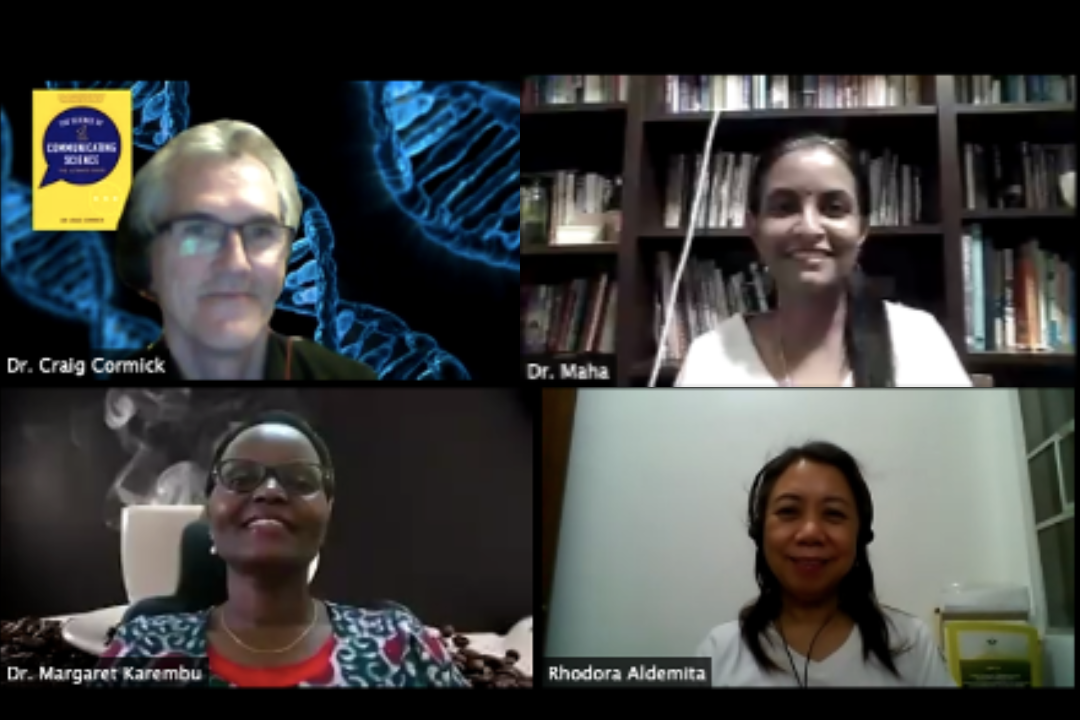
Experts Urged to Consider Audience Values when Communicating about Gene Technologies
August 12, 2020| |
Scientists' inability to effectively engage with the public has partly contributed to public misunderstanding of gene technologies. This is according to Dr. Craig Cormick, a renowned science communication expert and author from Australia. This could be attributed to the fact that experts tend to believe that the general public wants to know as much about science as they do.
Speaking during an ISAAA webinar on Challenges of Communicating Gene Technologies held on August 7, 2020, Dr. Cormick said that ‘'Experts need to move away from debating the science and look for the values that underline their audiences' decisions." He highlighted the importance of beginning by first understanding the diversity of the public, segmenting audiences within that public by their values, before developing and framing messages that align with those values.
Dr. Cormick also underlined the importance of trust in effective science communication, adding that it is built on competence and ethics. He also encouraged experts to work with everyone, while acknowledging their concerns. "Do not downplay people's concerns and appreciate that. If you are not the right messenger, assign spokespersons your audience trusts to deliver the message," he added.
The one-hour discussion that was moderated by Dr. Mahaletchumy Arujanan, ISAAA Global Coordinator, touched on various issues related to public engagement of science, including the effect of COVID-19 on the application of genetic engineering. Dr. Cormick stated that COVID-19 and conspiracy theories surrounding the pandemic were likely to have a negative impact on trust and acceptance around genetic engineering (GE), adding that, "The voices against GE will probably become stronger because polarization in society has become more magnified."
The webinar, which was the fourth and last in a four-part series of webinars on genome editing run by ISAAA, was attended by close to 200 participants from 59 countries. Watch the replay at ISAAA AfriCenter's Facebook page.
For more information on ISAAA's Genome Editing webinars, contact Dr. Margaret Karembu at mkarembu@isaaa.org.
| |
You might also like:
- New Book on Science of Communicating Science Published
- Pocket K No. 33: Communicating Crop Biotechnology
- Communication Challenges and Convergence in Crop Biotechnology
Biotech Updates is a weekly newsletter of ISAAA, a not-for-profit organization. It is distributed for free to over 22,000 subscribers worldwide to inform them about the key developments in biosciences, especially in biotechnology. Your support will help us in our mission to feed the world with knowledge. You can help by donating as little as $10.
-
See more articles:
-
News from Around the World
- FAO: Global Food Prices Rise in July
- Experts Urged to Consider Audience Values when Communicating about Gene Technologies
- Third Breakthrough Shows Photosynthetic Hacks Boost Yield and Conserve Water
- Study Finds Decline in Plant Breeding Programs in the US, Possible Impact on Food Security
- FSANZ Calls for Comments on Food Derived from GM Corn DP202216
-
Research Highlights
- Punjab-wide Survey of Bt Cotton Fields Reveal Variations in Cry Protein Accumulation
- Researchers Decode Black Mustard Seed Genome Using New Sequencing Technology
-
Plant
- Researchers Review Genome Editing Strategies Used in Developing Rice Disease Resistance
- Kansas State University and University of Saskatchewan Team Up to Improve Wheat Using CRISPR
- CRISPR Dominates Genome Editing Market, TALENs Projected to Grow until 2025
-
Health
- National Survey Says Most Americans Willing to Vaccinate Against COVID-19
- Human Immune System Responds to Plant-derived SARS-CoV-2 Antigens
-
Read the latest: - Biotech Updates (February 18, 2026)
- Gene Editing Supplement (January 28, 2026)
- Gene Drive Supplement (February 22, 2023)
-
Subscribe to BU: - Share
- Tweet

